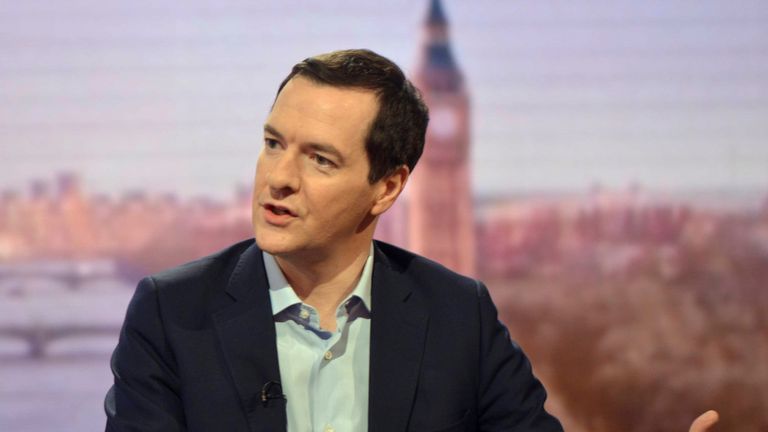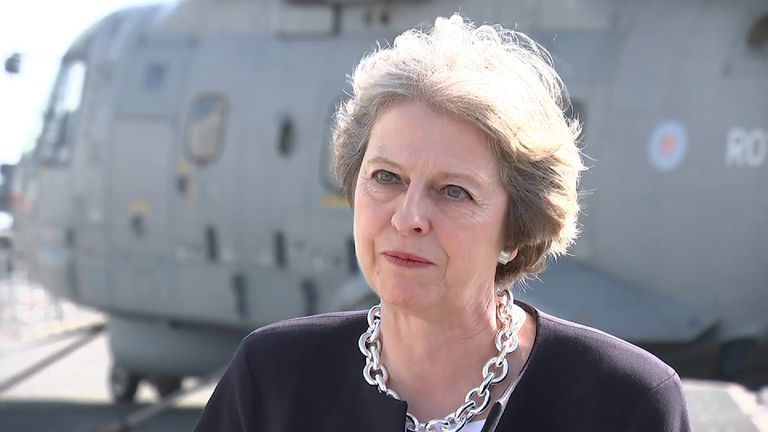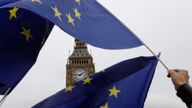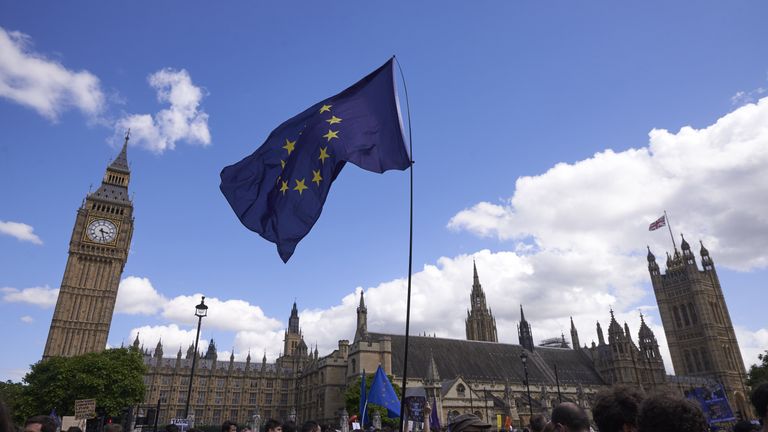George Osborne takes veiled swipe at Theresa May over Brexit
The Prime Minister, who was Home Secretary during the referendum, made just one major intervention for the Remain campaign.
Sunday 18 December 2016 18:09, UK
George Osborne has taken a veiled swipe at Theresa May's supposed lack of enthusiasm during the EU referendum campaign.
In his first major interview since , the former chancellor said he was originally against the idea of a referendum but "was not going to try and sit it out" when the vote was called.
Mrs May - who was Home Secretary prior to the Brexit vote and backed Remain - made just one major intervention during the campaign, reportedly earning her the name 'submarine May' for ducking the issue.
Speaking on the Andrew Marr show, Mr Osborne urged the Prime Minister not to have "red lines" in her Brexit talks.
"I would not go into this negotiation necessarily drawing red lines," he said.
"I would say we are leaving the EU - that's the only red line I would draw - let's go in there and try and get the best deal for Britain."
And in a warning shot at No 10, the Conservative backbencher said Parliament would have scrutiny over Brexit "whether the Government likes it or not".
"We live in a parliamentary democracy, Theresa May is the Prime Minister because Conservative MPs - myself included, in her case - chose her to be the Prime Minister.
"And of course Parliament is going to have to be central to these discussions because our Government comes out of Parliament."
Last month the Government - the formal process for leaving the EU. Their appeal is currently under consideration at the Supreme Court.
Mrs May also suffered a setback when pro-Europe MPs forced her to accept a Labour motion calling on her to publish a Brexit blueprint before commencing negotiations.
A key figure in the ill-fated Remain campaign, Mr Osborne acknowledged they had fought "the wrong campaign", adding that the group had "lacked some of the authenticity, some of the optimism" of its Leave counterparts.
He also conceded that the goal of getting net migration down to tens of thousands had damaged the Government's campaign efforts as they "didn't really have an answer" to ever-rising numbers.






